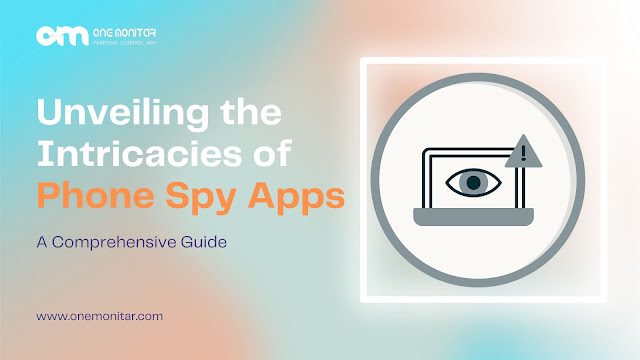Unveiling the Intricacies of Phone Spy Apps: A Comprehensive Guide
In today's digital age, where smartphones have become an indispensable part of our lives, concerns regarding privacy and security are more prevalent than ever. With the proliferation of communication through mobile devices, the need to monitor these interactions, especially in certain situations such as parental supervision or employee monitoring, has led to the development of phone spy apps. However, the mere mention of "phone spy apps" often raises eyebrows and invites skepticism. In this blog post, we delve into the world of phone spy apps, exploring their functionalities, ethical considerations, and implications for personal privacy.
Understanding Phone Spy Apps:
Phone spy apps, also known as cell phone monitoring software, are applications designed to monitor and track the activities on a targeted smartphone. These apps offer a wide array of features, ranging from call and text message monitoring to GPS tracking, social media monitoring, and even remote control capabilities. While originally developed for legitimate purposes such as parental control or employee monitoring, phone spy apps have also been subject to misuse, raising ethical concerns.
Features and Functionalities:
Phone spy apps typically offer a plethora of features aimed at providing comprehensive monitoring capabilities. Some common functionalities include:
- Call and Text Message Monitoring: These apps allow users to monitor incoming and outgoing calls, as well as text messages, providing insights into communication patterns and contacts.
- GPS Tracking: GPS tracking enables real-time location monitoring, allowing users to track the physical whereabouts of the target device.
- Social Media Monitoring: Many phone spy apps offer the ability to monitor activity on popular social media platforms such as Facebook, Instagram, WhatsApp, and Snapchat, providing insights into social interactions.
- Keylogging: Some advanced spy apps feature keylogging functionality, which records keystrokes typed on the target device, enabling access to passwords and other sensitive information.
- Remote Control: Certain spy apps allow users to remotely control the target device, including functions such as locking the device, wiping data remotely, or even taking screenshots.
Ethical Considerations:
The use of phone spy apps raises significant ethical considerations, particularly regarding privacy and consent. While these apps can be instrumental in ensuring the safety of children or monitoring employee productivity, their use without the knowledge or consent of the targeted individual can infringe upon personal privacy rights.
Legal Implications:
It is crucial to note that the legality of using phone spy apps varies depending on jurisdiction and the intended use. In many countries, the use of spy apps without the consent of the target individual may violate privacy laws and could result in legal consequences.
Conclusion:
Phone spy apps represent a double-edged sword, offering valuable monitoring capabilities while also posing ethical and legal concerns. While they can be useful tools for parental control, employee monitoring, or device security, their use should always be governed by principles of transparency, consent, and respect for personal privacy. Before deploying a phone spy app, it is essential to understand the legal implications and ethical considerations involved, ensuring that its use aligns with both legal requirements and moral standards.
In conclusion, while phone spy apps offer unprecedented access to the activities and interactions on a targeted device, their use should be approached with caution and responsibility, mindful of the potential implications for personal privacy and ethical boundaries.



Comments
Post a Comment